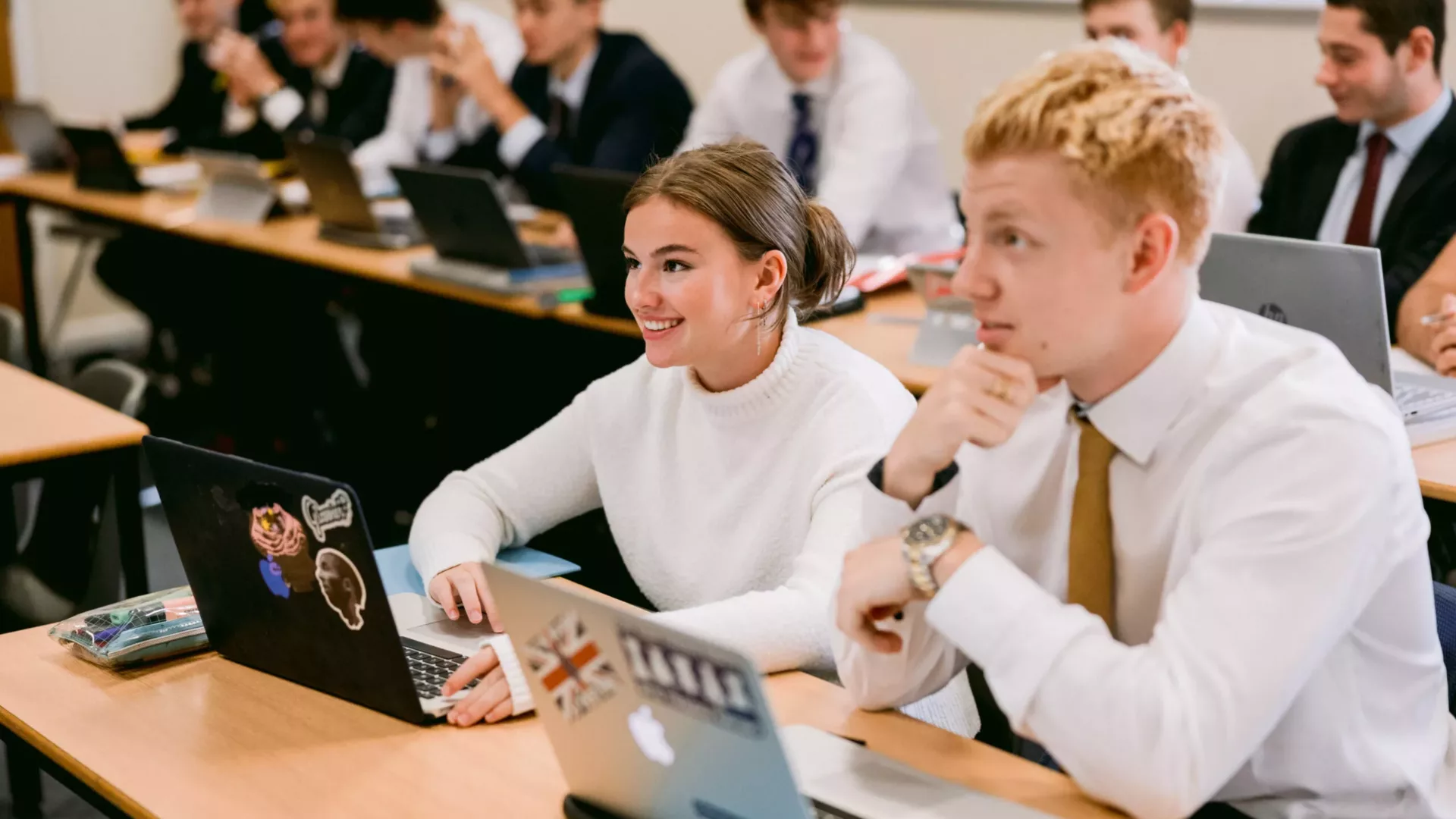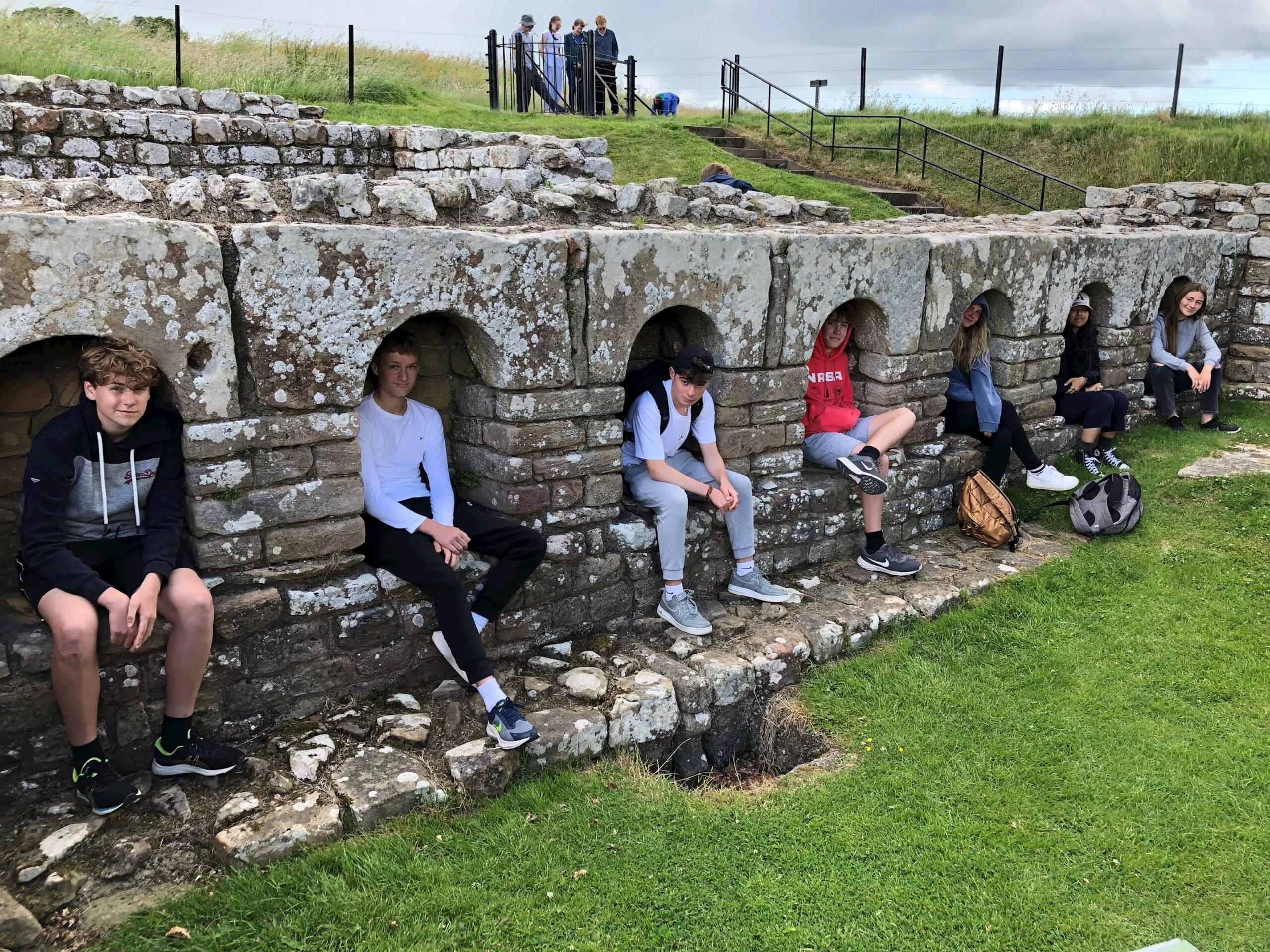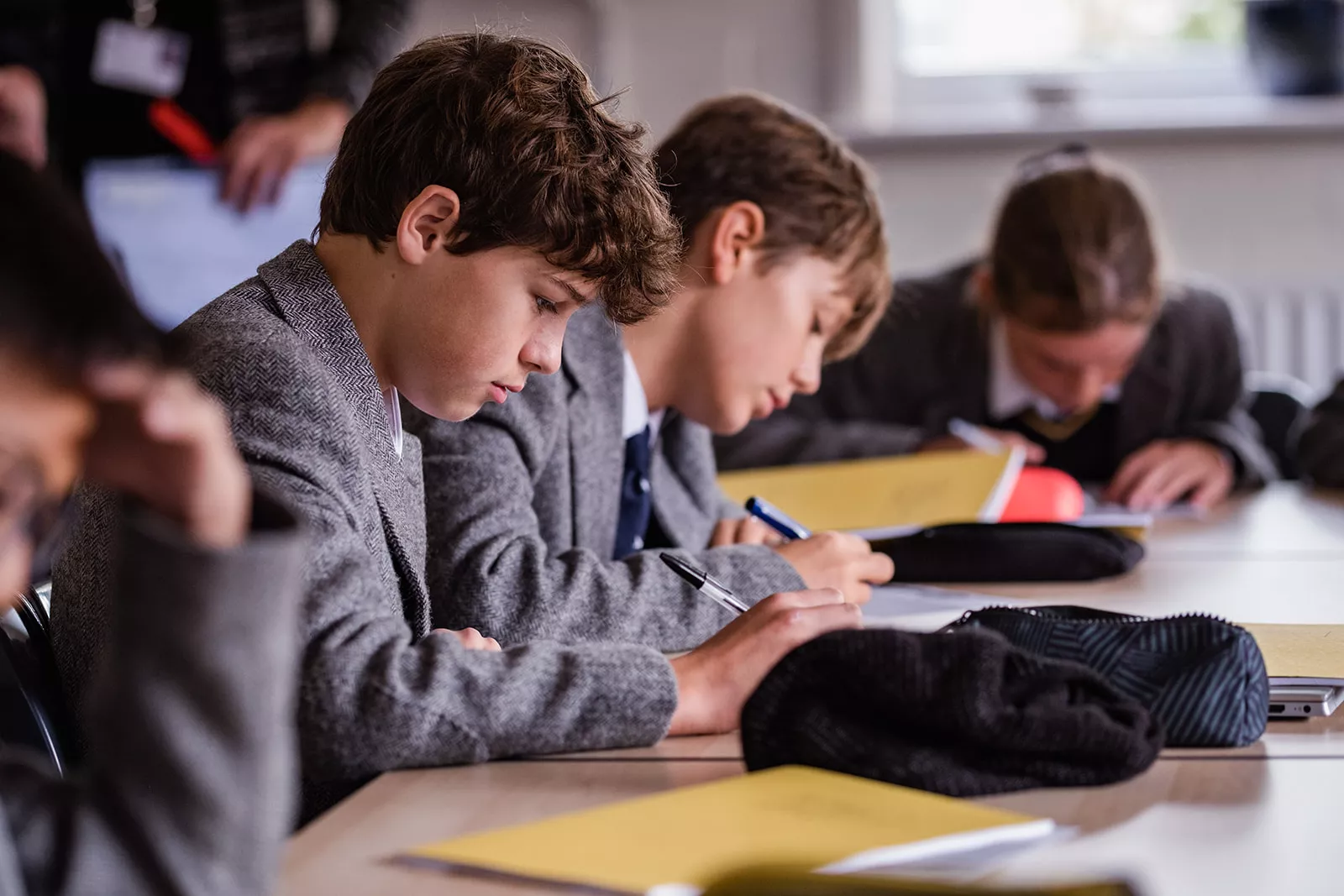Latin & Classical
Civilisation

Our aim is to explore the ancient world in depth and detail, to gain a real appreciation of their literature, art, architecture, philosophy and culture
The study of Greek and Roman literature allows the students to be able to read and analyse some of the finest literary texts in the Western world.
Our learning of the Latin language is placed firmly in the context of the Roman world, its culture, history and social practices. Our study is very much of a people as well as a language.
Studying Classics means learning about ourselves. So much of our own language, culture, art and ethos comes directly from the Greeks and the Romans. We read the best examples of poetry and prose from a rich Classical tradition. We learn to analyse and discuss with confidence their literary skills but we also deal with some of the big concepts such as love, jealousy, betrayal, honour and revenge.
The study of Classics covers so many different genres; from the epic poetry of Homer and Virgil to the Greek tragedies and comedies of Euripides and Aristophanes, students will have a real understanding of much of what the Ancient World can offer us today. By investigating the political world of the First Century BC in Rome, students are able to form balanced judgements and hold opinions on the brief period that gave rise to the birth of one of the most famous and far-reaching empires in history.

Learning Latin in 1st and 2nd Form gives students the confidence to understand how any language works. We teach Latin from first principles by looking at the structure of the language and the process of translation. Learning the Latin vocabulary is secondary to enjoying the intellectual challenge of deciphering a foreign language by following a set of rules to reach a solution. These are the skills that will serve the students well in any analytical work that they do.

-
Latin
1st and 2nd Form
-
Learning Latin from first principles. Understanding the basics of the grammar, the processes of translation, and some Latin vocabulary.
-
Learning about the Romans, Greeks and Ancient Britons through both historical events and mythology. We are introduced to a wide range of topics within their history and culture.
-
Cultural visits to support the learning in the classroom.
3rd Form
-
We build on the complexity of the language and extend the vocabulary towards the GCSE.
-
We continue to learn about the culture and history of the Greek and Roman worlds through their literature.
GCSE
-
Language: We read stories from Greek mythology and Roman history in Latin.
-
Literature: We read short texts from real Roman authors such as Pliny and Tacitus. We read Roman verse poetry from authors such as Virgil and Ovid.
-
Students learn to translate the literature and comment effectively on the style of the writing.
A-Level
-
Language: Students read more complex prose and verse passages and develop their translation skills, language analysis and vocabulary.
-
Literature: Students read longer sections of unabridged Latin text from Roman prose and verse authors such as Cicero, Tacitus, Horace and Catullus. They are able to produce longer and more developed answers on the content and style of the writing.
-
A-Level Classical Civilisation
There are four sections to the A-Level:
-
Roman Epic: we read selected books of Virgil’s Aeneid
-
Greek Epic: we read selected books of Homer’s Iliad
-
Politics of the Late Roman Republic: we focus on three key figures from this controversial period in Roman history: Julius Caesar, Cato the Younger, and the famous orator Cicero
-
Greek Theatre: we read two tragedies, Oedipus the King and The Bacchae, and one comedy by Aristophanes, The Frogs
-
Classical Greek
Students from 3rd Form upwards also have the opportunity to study Classical Greek off-timetable. We work towards sitting the GCSE at the end of the second year of study.
1st and 2nd Form
-
Learning Latin from first principles. Understanding the basics of the grammar, the processes of translation, and some Latin vocabulary.
-
Learning about the Romans, Greeks and Ancient Britons through both historical events and mythology. We are introduced to a wide range of topics within their history and culture.
-
Cultural visits to support the learning in the classroom.
3rd Form
-
We build on the complexity of the language and extend the vocabulary towards the GCSE.
-
We continue to learn about the culture and history of the Greek and Roman worlds through their literature.
GCSE
-
Language: We read stories from Greek mythology and Roman history in Latin.
-
Literature: We read short texts from real Roman authors such as Pliny and Tacitus. We read Roman verse poetry from authors such as Virgil and Ovid.
-
Students learn to translate the literature and comment effectively on the style of the writing.
A-Level
-
Language: Students read more complex prose and verse passages and develop their translation skills, language analysis and vocabulary.
-
Literature: Students read longer sections of unabridged Latin text from Roman prose and verse authors such as Cicero, Tacitus, Horace and Catullus. They are able to produce longer and more developed answers on the content and style of the writing.
There are four sections to the A-Level:
-
Roman Epic: we read selected books of Virgil’s Aeneid
-
Greek Epic: we read selected books of Homer’s Iliad
-
Politics of the Late Roman Republic: we focus on three key figures from this controversial period in Roman history: Julius Caesar, Cato the Younger, and the famous orator Cicero
-
Greek Theatre: we read two tragedies, Oedipus the King and The Bacchae, and one comedy by Aristophanes, The Frogs
Students from 3rd Form upwards also have the opportunity to study Classical Greek off-timetable. We work towards sitting the GCSE at the end of the second year of study.